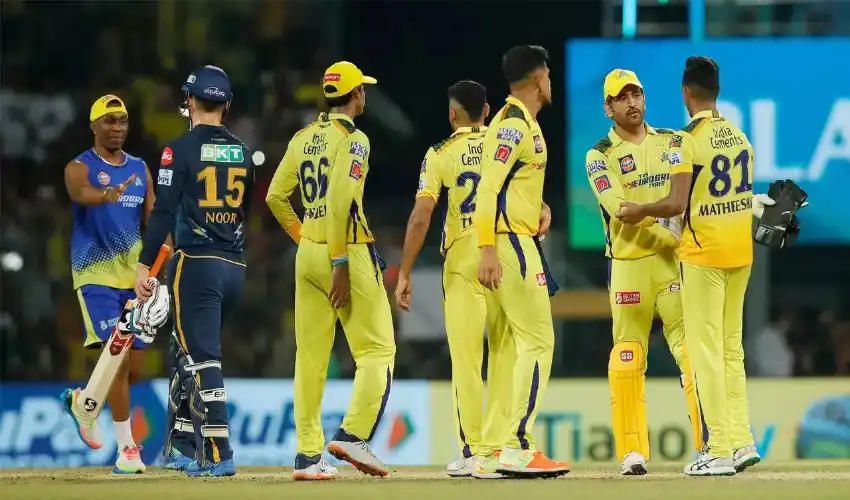The Indian Premier League (IPL) is one of the most popular cricket tournaments globally, attracting millions of fans and bettors each season. Predicting the outcomes of IPL matches has become a complex yet thrilling challenge, given the multitude of factors influencing a game’s result. Understanding these key aspects can help enthusiasts and analysts make informed predictions. Here are the eight critical factors that influence IPL match predictions:
- Team Composition and Player Form
Team composition plays a pivotal role in determining the outcome of an who will win todays IPL match. A well-balanced team with strong batting, bowling, and fielding units has a better chance of performing consistently. Additionally, individual player form is crucial. A star player in prime form can single-handedly change the course of a game.
For instance, players like Virat Kohli, MS Dhoni, or Jasprit Bumrah, when at their best, can dominate matches. Conversely, an out-of-form player might struggle to contribute effectively, affecting the team’s overall performance.
- Pitch and Ground Conditions
The nature of the pitch and ground conditions significantly impact match outcomes. Some pitches favor batsmen with true bounce, while others assist bowlers with swing, seam, or spin. For example:
- Wankhede Stadium in Mumbai is known for being a high-scoring venue.
- The Chepauk in Chennai often aids spinners due to its dry and slow surface.
Understanding these conditions can help predict whether a match will be high-scoring or low-scoring and which team might have an advantage.
- Weather Conditions
Weather plays a subtle yet important role in IPL matches. Rain interruptions can lead to reduced overs, impacting the strategies of both teams. Cloudy conditions might assist swing bowlers, while dry weather is usually favorable for spinners. Additionally, dew during night games can make gripping the ball difficult for bowlers, giving an edge to the batting side.
- Head-to-Head Records
Analyzing the historical performance of teams against each other provides valuable insights. Certain teams tend to perform better against specific opponents due to favorable matchups or psychological edges. For example, the Chennai Super Kings have a history of dominating certain teams in IPL clashes.
- Toss and Match Timing
The toss can heavily influence match predictions, especially in venues where conditions change significantly during the game. For example:
- Chasing teams often have an advantage in venues where dew becomes a factor in the second innings.
- In day games, batting first might be preferable to avoid batting under the scorching sun.
Captains’ decisions at the toss can thus be a game-changer.
- Team Momentum and Morale
Momentum can be a decisive factor in a tournament like the IPL. A team on a winning streak is often high on confidence, which can translate into better on-field performance. Conversely, a string of losses might lead to low morale and increased pressure, affecting decision-making and execution.
- Injuries and Player Availability
Injuries and player availability can dramatically alter a team’s strength. For instance, if a key player like Rashid Khan or Andre Russell is unavailable due to injury, the team might struggle to fill the void. Similarly, international commitments can lead to the absence of overseas players, impacting team balance.
- Match Situations and Pressure Handling
The ability to handle pressure situations is often the hallmark of a champion team. Close finishes and high-stakes games require composure and effective decision-making. Teams like Mumbai Indians and Chennai Super Kings have repeatedly demonstrated their ability to thrive under pressure, making them consistent performers in the IPL.
How These Factors Interact
Predicting IPL match outcomes is not as simple as analyzing one or two factors in isolation. These elements often interact dynamically. For instance:
- A team with strong head-to-head records might still struggle if key players are out of form.
- Favorable pitch conditions might not be enough if the opposition excels in handling specific situations.
Combining these factors into a comprehensive analysis can provide more accurate predictions.
Leveraging Technology and Data Analytics
Modern IPL match predictions increasingly rely on data analytics and technology. Algorithms analyze player statistics, team performances, and historical data to forecast outcomes. Fans and analysts use these insights to enhance their understanding of the game.
For example, predictive models can calculate the probability of a team winning based on various parameters like recent form, pitch conditions, and toss outcomes. Machine learning tools also identify trends and patterns that might not be apparent to the human eye.
Final Thoughts
While predicting IPL matches is inherently uncertain due to the game’s unpredictable nature, understanding the key factors influencing outcomes can significantly improve accuracy. From team composition to weather conditions and player availability, each aspect plays a vital role. By integrating data analytics and staying updated on the latest developments, fans and analysts can enjoy a deeper appreciation of the game and make more informed predictions.
